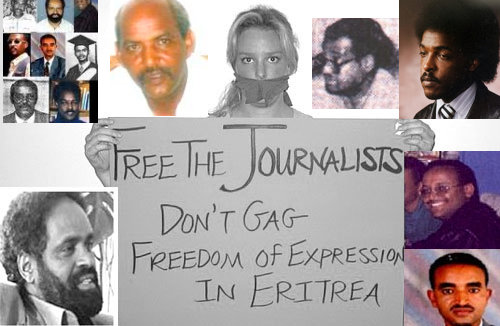rashemamelson.org – Eritrea, a small country in the Horn of Africa, has a complex and challenging media landscape. The country’s media and press freedom have been subjects of international scrutiny and concern. This article explores the state of media and press freedom in Eritrea, highlighting the challenges and developments in the sector.
Overview of Eritrea’s Media Landscape
Media Ownership and Control
The Eritrean government exerts significant control over the media landscape. The majority of media outlets, including television, radio, and newspapers, are state-owned or state-controlled. Independent media operations face numerous obstacles, including restrictions on licensing and distribution.
Internet and Social Media
The internet in Eritrea is heavily regulated, with the government controlling access and monitoring online activities. Social media platforms are popular among the youth but are also subject to surveillance and censorship. The government has been known to block access to certain websites and social media platforms during periods of political unrest.
Challenges to Press Freedom
Censorship and Self-Censorship
Journalists in Eritrea face strict censorship, with the government controlling the content of news and information disseminated through media outlets. Self-censorship is also prevalent, as journalists and media outlets avoid sensitive topics to prevent reprisals from the authorities.
Arrests and Harassment of Journalists
Eritrean journalists and media workers operate in a climate of fear, with many facing arrest, harassment, and intimidation. The government has been accused of detaining journalists without trial and subjecting them to harsh conditions. These actions have led to a severe lack of press freedom in the country.
International Rankings and Criticism
Eritrea consistently ranks low in international press freedom indices, such as those published by Reporters Without Borders (RSF). The country has been criticized for its repressive media policies and the lack of a freedom of expression. International organizations have called for the release of detained journalists and improvements in press freedom.
Efforts to Improve Media and Press Freedom
Government Initiatives
The Eritrean government has taken steps to improve the media landscape, including the establishment of the Eritrean Press Association (EPA). However, these efforts have been criticized for not addressing the root causes of press freedom issues, such as censorship and the lack of an independent judiciary.
Role of International Community
International organizations and governments have urged Eritrea to respect media and press freedom. Diplomatic efforts and human rights dialogues have been used to raise awareness and pressure the Eritrean government to implement reforms.
Civil Society and Activism
Eritrean civil society groups and activists, both within the country and in the diaspora, play a crucial role in advocating for media and press freedom. They use various platforms, including social media, to highlight abuses and support journalists.
Conclusion
Eritrea’s media and press freedom are severely restricted, with the government exerting control over the media landscape and suppressing independent journalism. The challenges faced by journalists and media outlets are significant, including censorship, harassment, and lack of freedom of expression. While there have been efforts to improve the situation, substantial reforms are needed to ensure a free and independent media in Eritrea. The international community, along with Eritrean civil society, continues to play a vital role in advocating for press freedom and supporting journalists in their struggle for a more open and democratic media environment.
